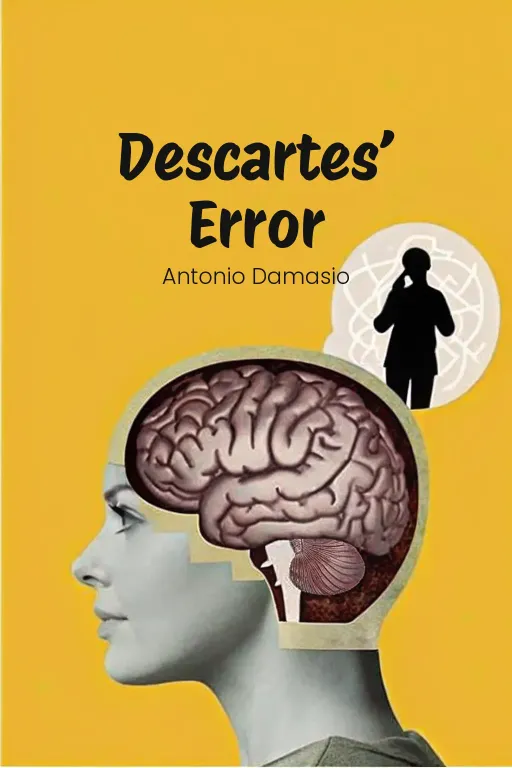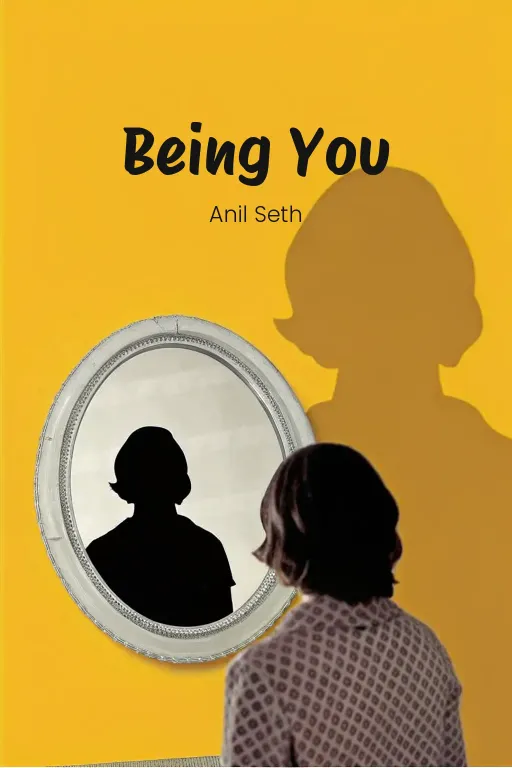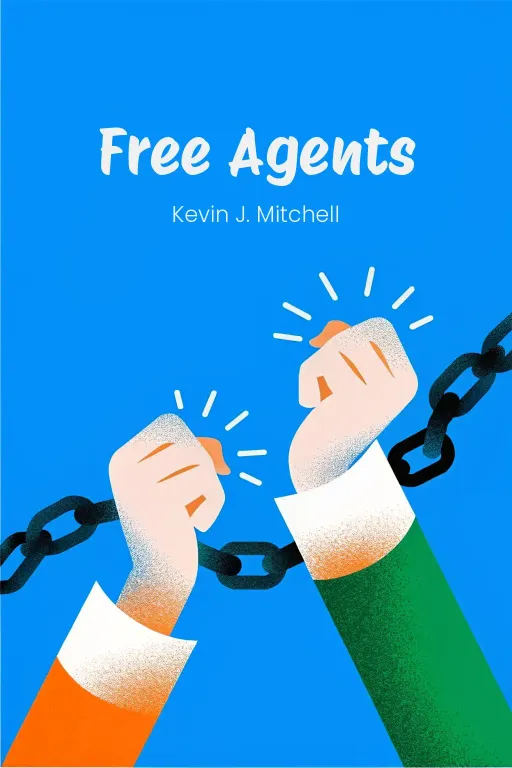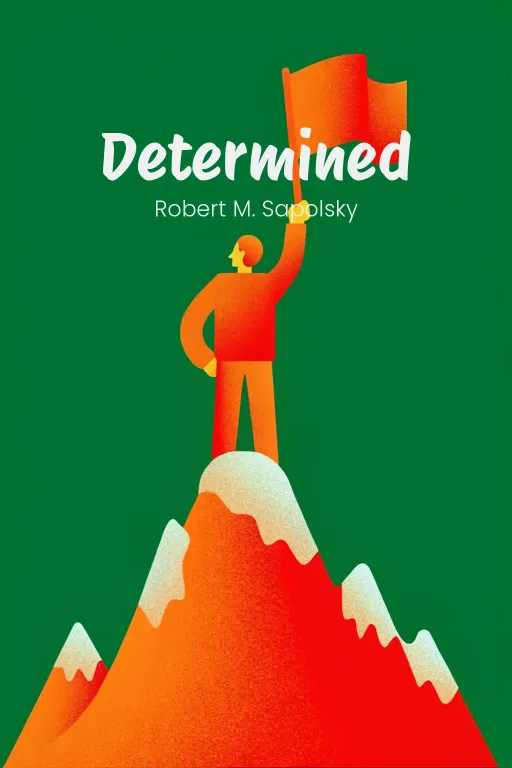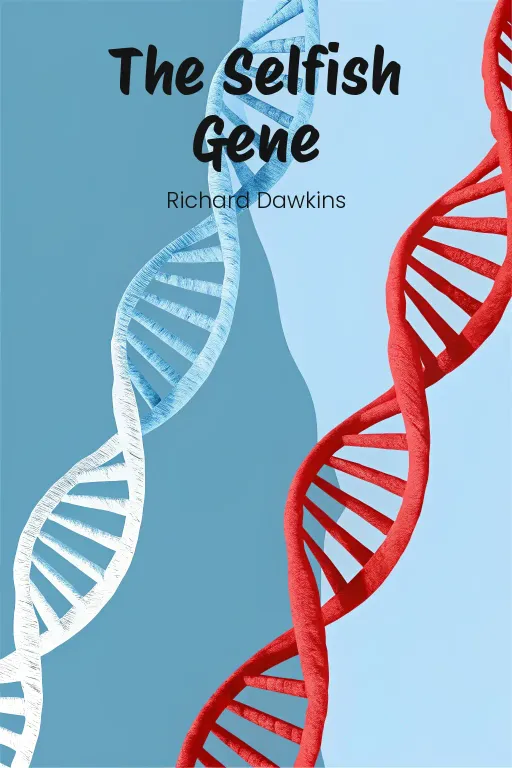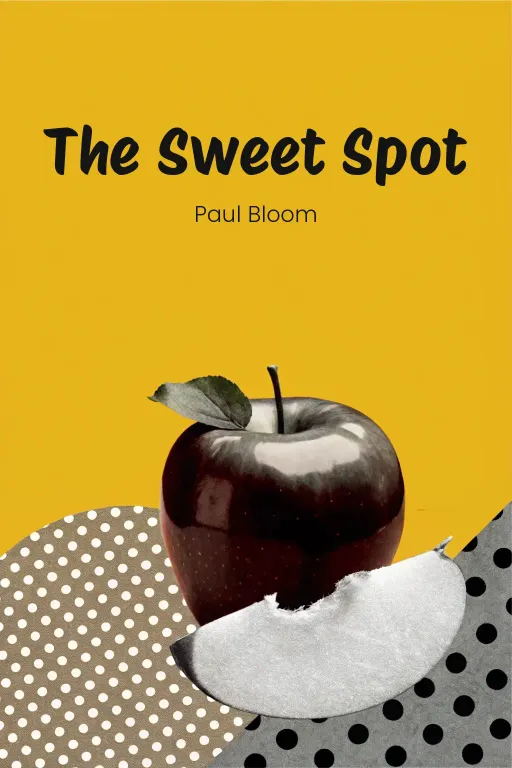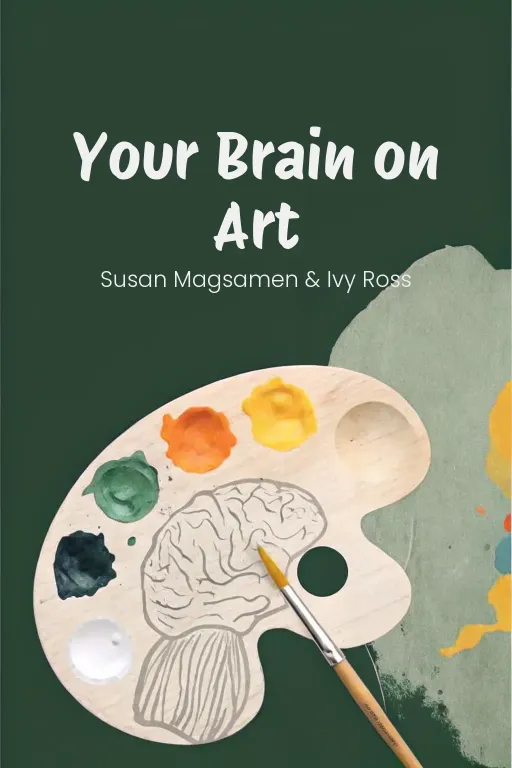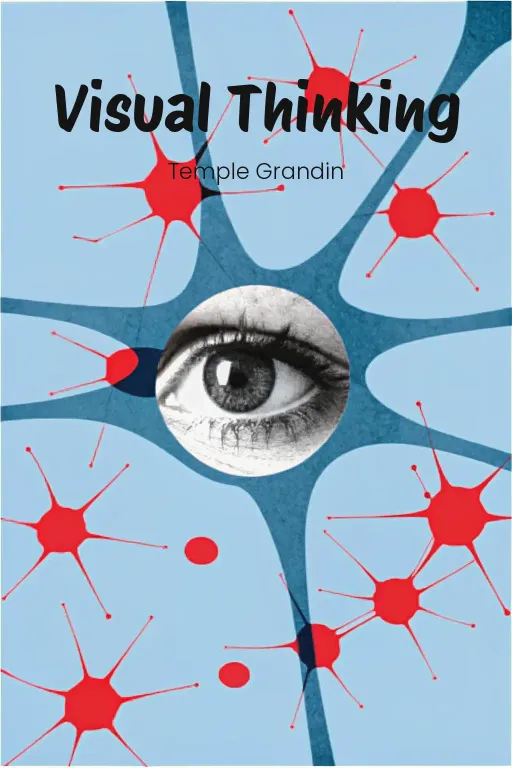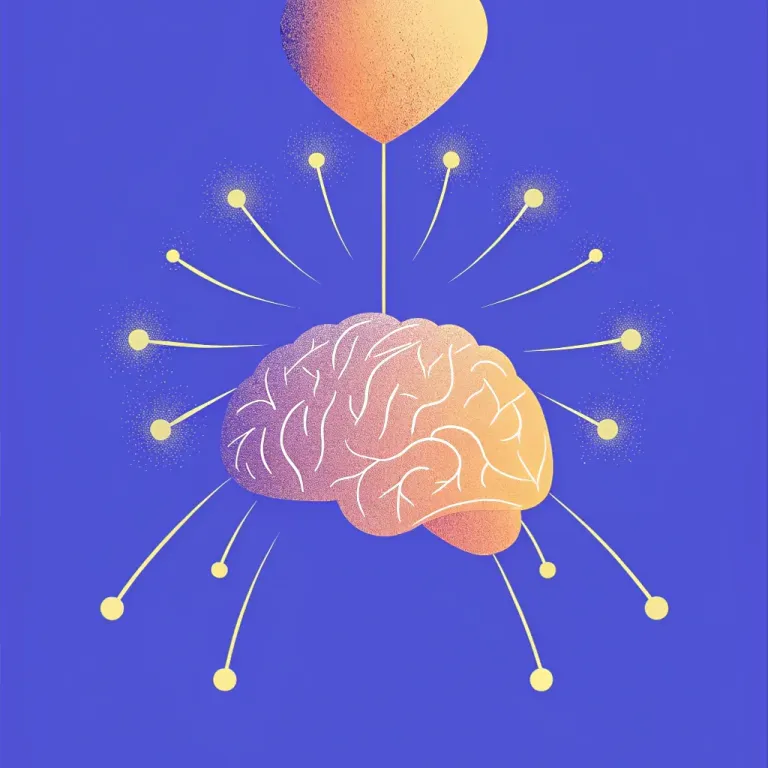
Trust Your Gut: The Science of Emotion
Podcast by The Mindful Minute with Autumn and Rachel
Emotion, Reason and the Human Brain
Trust Your Gut: The Science of Emotion
Part 1
Autumn: Welcome back to the show, everyone! Today, we’re diving into a book that really shook up how I understood the human mind: Antonio Damasio's Descartes’ Error. Rachel, you know that feeling when you just know something, deep down? Rachel: Oh, you mean like when I had that “feeling” that wearing socks with sandals was a fashion crime? Turns out, society agreed. Autumn: Exactly! Well, Damasio argues those gut feelings aren’t random. They are based on how our brains are wired for decision-making. The book basically challenges the long-held belief that reason and emotion are total opposites. Damasio says they’re actually deeply connected! Rachel: Okay, so it sounds like this Damasio guy isn't just taking a swipe at Descartes' famous line, "I think, therefore I am." He's claiming our thoughts are actually powered by our emotions? Autumn: Precisely! And he makes a compelling case using fascinating case studies. Think about Phineas Gage, the guy with the iron rod through his head. His personality changed completely. Then there's Elliot, who couldn't make decisions after damage to the emotional centers of his brain. These stories highlight just how inseparable emotion and reason truly are. Rachel: Alright, Autumn, I'm intrigued. There's gotta be some unifying grand theory here, right? Autumn: You know it! It’s called the somatic marker hypothesis. Basically, our brains tag experiences with emotional signals. These signals act like internal guides, helping us make choices. And the implications go way beyond just understanding the brain; Damasio suggests this could revolutionize fields like medicine and psychology. Rachel: So, if I'm hearing you right, emotions aren't just these messy little things that get in the way of clear thinking. They're essential – more like the glue holding our rationality together. Alright, I'm sold. Where do we even begin unpacking this?
Interplay of Emotion and Reason
Part 2
Autumn: So, let's dive right in by questioning the foundational idea that Damasio challenges. For centuries, Western thought—largely thanks to Descartes—has treated emotion and reason as two separate things. Reason's up here in the brain, all analytical and lofty, while emotions are...somewhere down there, messy, unruly, like a circus we’d rather ignore. Rachel: Right, the classic view of humans as rational beings, just, you know, saddled with emotional baggage that messes everything up. It's built into how we even talk about decision-making, isn’t it? “Be logical," we say, "don’t let your emotions cloud your judgment." But Damasio's flipping that on its head? Autumn: Completely. He wants us to see emotions as central—not distractions, but actually vital navigational tools. He uses cases like Phineas Gage, which we mentioned, as evidence that reason is incomplete without emotion. And that's where the real shift happens—not just philosophically, but neurologically. Rachel: Speaking of Gage… his story is just insane. A life-altering event but also so linked to the development of brain science that no one in 1848 could have fully understood. What exactly did his accident teach us? Autumn: Gage's case showed that damage to his prefrontal cortex—specifically the areas tied to emotion regulation—didn't just change his behavior. It severed the connection between his cognitive reasoning and his emotional compass. This wasn't just a personality quirk, it was a total inability to align his decisions with his values. Rachel: Okay, so his intellectual machinery still worked, but without the emotional oil, the whole thing seized up. Autumn: Exactly. Gage goes from being a disciplined leader to someone who alienates everyone and loses his job. It's like the accident stripped him of the ability to “care” about the consequences—and that caring, is the emotional layer that makes reason relevant. Rachel: So, in modern terms, it's like having a super powerful computer with the right software, but no internet connection to real-world data. The structure’s there, but you’re isolated from the bigger picture. Autumn: That's a perfect way to put it. And if Gage is the poster child for the emotion-reason disconnect, then Elliot is the next case study. Rachel: Ah, Elliot—the man who could analyze, but just couldn't act. Remind us of the story again. It’s just as interesting, especially how Damasio uses him to connect the dots. Autumn: Definitely. Elliot was brilliant, successful—a model of rationality, you could say. But after surgery to remove a frontal lobe tumor, everything fell apart. Intellectually, he was fine. He could solve moral dilemmas, debate ethics, recite facts. But in real life? He was directionless. Couldn't pick lunch, couldn't prioritize work. Rachel: He's like that friend who spends hours researching every review site before buying a pair of headphones, and ends up too paralyzed to choose. But in Elliot’s case, it wasn’t indecision based on overthinking, was it? Autumn: No, it was a complete lack of emotional input. Damasio describes how Elliot’s decision-making became this endless loop of cold reasoning—every option was processed, dissected, evaluated, but everything felt equally...neutral. Rachel: Wait, and this leads us back to the somatic markers we talked about earlier, right? Autumn: Exactly. The somatic marker hypothesis argues that your brain constantly creates "markers" based on emotional and sensory experiences. They're like shortcuts that help you assess situations without having to consciously analyze every single variable. Rachel: Let me guess—Elliot’s emotional compass was busted, so his body stopped creating those critical markers? Autumn: Totally. Without emotional signals, nothing triggered physical or intuitive feedback—you know, that sinking feeling, a jolt of excitement. So, whether he was deciding between jobs or choosing socks, it all seemed...completely neutral. Rachel: Makes you think, doesn’t it? These signals might be small—a flutter in your chest, sweaty palms—but they’re like the MVPs of decision-making. Autumn: And Damasio shows how essential they are for us to function. Imagine playing poker, for instance. A bad bet makes you sweat, your stomach churns, and you subconsciously learn to avoid risky decisions next time. That's a somatic marker doing its job. But in Elliot's case, those bio-feedback loops? Gone. Rachel: It’s wild how it inverts cultural wisdom. We're told to suppress emotions when making choices, but Damasio's saying if you lose those emotions, you also lose the framework for making choices. Autumn: Exactly. And he goes further—pointing out implications for mental health and ethics. It’s not just about Gage or Elliot; it’s about understanding that rationality is inherently emotional. Rachel: Which means our philosophical hero, Descartes, Mr. "I think, therefore I am," might have missed something pretty crucial. Autumn: That’s the core of Damasio’s argument. Descartes separated mind and body, treating reason as this abstract, untouchable force. But Damasio argues we’re deeply embodied creatures, and ignoring that connection leads to a skewed understanding—of ourselves, our decisions, of humanity itself.
Somatic Marker Hypothesis
Part 3
Autumn: So, this really sets the stage for how we rethink brain function. Cases like Elliot's aren't just about missing emotions; they really highlight how decision-making happens through this thing called the somatic marker hypothesis. Rachel: Exactly, the somatic marker hypothesis is kind of a big deal. The idea is that our bodies are giving our brains emotional summaries—shortcuts based on past experiences that influence our choices. Autumn: Precisely. The groundbreaking part of Damasio's work is that it connects emotions and decision-making. Think of it as a fast-track system. Instead of getting lost in logical pros and cons, your body flags options as good or bad based on emotional memories. It’s like a built-in warning system: "Hey, remember that this didn't work out? Or, this went well, so go for it." Rachel: So, it's like turning experiences into instincts? I imagine it isn't just gut feelings, it’s a full-body briefing on what to prioritize and avoid. But how do we know this is solid science, not just a theory? Autumn: Well, let's start with Damasio's famous gambling experiment. It's like the Rosetta Stone for this hypothesis. Participants pick cards from four decks. The "bad decks" have high short-term rewards but big long-term losses. The "good decks" offer smaller gains but are better in the long run. Can people figure out which decks are best to win? Rachel: Ah yes! People may consciously figure the method to win. But the study showed that our body knows the better answer even before our brain understands it? Autumn: Spot on. People with healthy brains don't just use logic to avoid the bad decks. Early on, before they even knew the decks were risky, they showed physical signs—sweaty palms—when reaching for them. These reactions were like warning bells, leading them to better choices before they consciously knew the pattern. Rachel: And people with damage to the ventromedial prefrontal cortex—like Elliot. They don't get those physiological warnings, so they keep picking from the bad decks, losing money. Autumn: Exactly. Without those somatic signals guiding them away from bad choices. And that’s key, the emotions encoded shape our behavior in ways that thinking alone can’t. Rachel: That's wild! It changes how we see decision-making. We think of flowcharts of logic, but Damasio says it’s more like a dance between the brain and body, with emotions leading. Autumn: Nicely put. And it's not just about gut feelings—it’s about experiences building up over time, creating a network of somatic markers. Like if you touch a hot stove, your brain doesn't just remember "danger." The pain, the fear, the smell—they all become part of your emotional memory. Next time you're near a stove, your hand hesitates before you even think. Rachel: It also explains random aversions we can't trace back. Like, "Why do I hate this flower shop smell?" Oh, right, it was where I had my worst breakup. Our bodies carry this huge emotional archive, whether we know it or not. Autumn: Exactly. And it makes decision-making super efficient. Without these markers cutting out options, our brains would be overwhelmed. Somatic markers are like your inner editor, focusing you on what matters. Rachel: But you said this isn’t just biological, culture influences it too, right? Otherwise, reactions would be universal. Autumn: Absolutely, culture is huge. If you grow up in a culture that values smiling, even when uncomfortable, you might not react as strongly to social slights because you're taught to prioritize harmony. Someone from a more direct culture might have a totally different reaction because confrontation is normal. Rachel: So, we're not just autopilot emotion-generators—these markers are shaped by where we live, how we're raised, even what we believe. That gives it nuance. Two people could enter the same room, and one feels welcome while the other feels uneasy, all because of their history. Autumn: And that's why this hypothesis is revolutionary. It makes decision-making personal, matching biology and experience. It challenges the idea of logic as a universal tool. In reality, thinking is only as good as the emotional data it's based on. Rachel: And that data isn't just spreadsheets—it’s in your sweat glands, heart rate, and gut. Autumn: Exactly. Think of the implications for medicine, psychology, and AI. If decision-making is tied to emotions, then treating disorders like PTSD or addiction means fixing emotional feedback loops, not just thoughts. And in tech, AI systems that recognize emotions might make better decisions. Rachel: So, if you ignore the somatic marker hypothesis, you're making decisions blindfolded. You're cutting off the emotional feedback that keeps you grounded. Autumn: Right. And to bring it back to Damasio’s critique of Descartes, this error isn’t just philosophical, it’s practical. "Pure rationality" is a myth. Our decisions are deeply “embodied”, every choice we make is linked to emotions, experiences, and culture.
Applications in Neuroscience and Medicine
Part 4
Autumn: So, understanding this hypothesis, it naturally leads us to its real-world impact on medicine and psychology. What's “really” compelling is how applying these insights to neuroscience and clinical practices can transform patient care and deepen our understanding of human behavior. Rachel: Okay, let me guess, we're going to talk about how emotional deficits affect actual health conditions, right? Like, what happens when someone's brain's "emotional GPS" just shuts off? Are we talking about neurological disorders? Autumn: Exactly. Let's take anosognosia – it’s a “really” striking example of an emotional and cognitive disconnect. It’s a condition where someone is completely unaware of their own disabilities. Imagine not being able to move the left side of your body after a stroke, but you're confidently saying there's nothing wrong. The patient might even say, "Oh, I had that, but it’s gone now," while their arm is just hanging there, limp. Rachel: Wow, that's... intense. Just to be clear, this isn't just denial, right? Not like when you brush off a sore ankle or pretend you're fine when you're not. This is a total break in awareness, right? Autumn: Exactly. It’s not just refusing to acknowledge it, it’s a fundamental failure of the brain to even register the reality. And what's fascinating is how it ties back to emotional responses. Patients with anosognosia, particularly after damage to the right hemisphere, often show indifference or even humor when confronted with their condition. Rachel: Humor? As in, laughing that they can't move half their body? That’s “really” out of sync with the situation. Autumn: Totally, and that's what makes it so compelling. This emotional detachment isn't a defense mechanism – it severely limits their ability to make decisions based on reality. Think about recovery or therapy. If you don't feel the weight of your condition, why would you show up for rehab? Why would you even consider lifestyle changes? Rachel: Right, no emotional engagement, no motivation. If nothing seems serious, if the consequences don't feel real, taking action becomes impossible. Autumn: Exactly! And this gets at the heart of Damasio's argument: emotional awareness isn't just a "nice-to-have," it’s essential for functional reasoning. Neuropsychologist Steven Anderson observed how anosognosic patients can't anticipate personal or social consequences. Their understanding stays super superficial, so they can’t deal with long-term implications. Rachel: It's like trying to navigate life with a blank roadmap. No gut instinct telling you, "This could go “really” wrong." No warning alarms at all. Autumn: And without those alarms, they dismiss their condition and often reject treatments that could help them recover. It's like building a house on a bad foundation—unless we deal with the emotional structure, logic can't support actual decision-making. Rachel: So, this condition shows us how emotions don't just inform behavior, they drive it. You might be able to work through a problem on paper, but without emotion, you're stuck. Speaking of which, are there ways to help these patients reconnect with their missing emotional foundation? Autumn: Absolutely, and this is a fascinating crossroads for neuroscience and psychology. Therapies that foster emotional awareness can be key. Therapy can help patients with anosognosia slowly recognize their disabilities and re-engage them emotionally. It’s about rebuilding that bridge between self-awareness and understanding that leads to action. Rachel: So, instead of just saying, "You're paralyzed on the left side," the goal is a more gradual process where they feel the consequences in a controlled, supported environment. Integrating emotional recognition into their rehab, right? Autumn: Exactly. Emotional engagement, over time, can help fix the gap between knowledge and action. Damasio's work even extends this to frontal lobe damage—patients who, like Elliot, don't internalize the emotional effects of their impairments. Rehab for this often combines emotional re-engagement with basic problem-solving, teaching them to recognize and process emotions like guilt, hope, or fear. Rachel: It's amazing how this brings back the emotional aspect to recovery. Like rebooting the system—getting patients to re-link the abstract idea of "damage" with the very human, felt experience of that damage’s weight. Autumn: It's incredibly transformative, and the more you think about it, the more it challenges the traditional medical approach. For so long, treatment has been physical first, emotional second—or worse, completely ignored. Damasio puts emotional health at the forefront of recovery. Rachel: And it’s not just about neurological disorders, is it? This integrating emotional awareness concept can help anyone facing physical or mental challenges. Autumn: Definitely. From post-surgical trauma to addiction recovery, understanding and treating emotional disconnections is key. In somatic emotional disconnections, for example, patients feel pain but aren't emotionally bothered by it. Ignoring emotions in these cases can hurt long-term recovery because the patient can't process or meaningfully respond to the distress. Rachel: Right, and recovery without emotional processing just becomes about surviving, not thriving. Like fixing a car engine without checking if the tires can handle the road. Autumn: Exactly. The integration approach that Damasio advocates is a “real” paradigm shift–designing treatment protocols that address physical symptoms, emotional well-being, and cognitive function together. It’s a more holistic care model that acknowledges that emotions aren’t separate from reasoning or health. Rachel: And honestly, this even has implications beyond the clinic. If we apply these principles to leadership, education, therapy, even justice systems, it reshapes how we think about decision-making, humanity as a whole. Autumn: Completely. It’s not just Damasio’s teachings, it's about facing what happens when we ignore those lessons. When medicine or society ignores emotion, we lose a whole dimension of how humans function. Damasio isn’t just rewriting neuroscience, he’s urging us to rethink care, empathy, and progress.
Conclusion
Part 5
Autumn: So, to bring it all together, Damasio’s really challenging us to rethink the whole emotion-reason dynamic. Emotions aren't just some afterthought to reason—they're actually foundational. Through the cases like Phineas Gage, Elliot, plus ideas like the somatic marker hypothesis, we've seen how tightly interwoven emotion and reason actually are. Decision-making, at its heart, is this intricate dance between our thoughts and emotions, with our bodies giving us the cues to navigate life’s complexities. Rachel: Right, and this goes way beyond just abstract theory. It’s got real-world implications, doesn’t it? From how we deal with mental health and neurological issues to completely changing how we think about emotional awareness in our daily choices. Dismissing, or worse, ignoring emotions isn’t some kind of rational, Spock-like move; it’s basically like tossing out your GPS and then wondering why you’re lost. Autumn: Precisely! So the key takeaway here is: emotions aren’t the enemy. They're your body’s way of flagging something important, of saying, “Hey, pay attention, this matters.” Whether we're talking about medical practices, our own personal choices, or even the progress of society as a whole, acknowledging the importance of emotion is crucial for making smarter, more human-centered choices. Rachel: So, next time you get that gut feeling or a moment of hesitation, maybe don't immediately brush it aside. It’s your brain and body working in sync, shaping the decisions that ultimately define who you are, right? Autumn: Absolutely. So, with that in mind, let's leave our listeners with this to consider: If our emotions are what “really” ground our reason, how might paying closer attention to our own emotional signals actually change the way and the choices we make? Rachel: Definitely food for thought. Until our next conversation—stay sharp, keep questioning everything. Autumn: And remember, trust that gut feeling! See you all next time!

